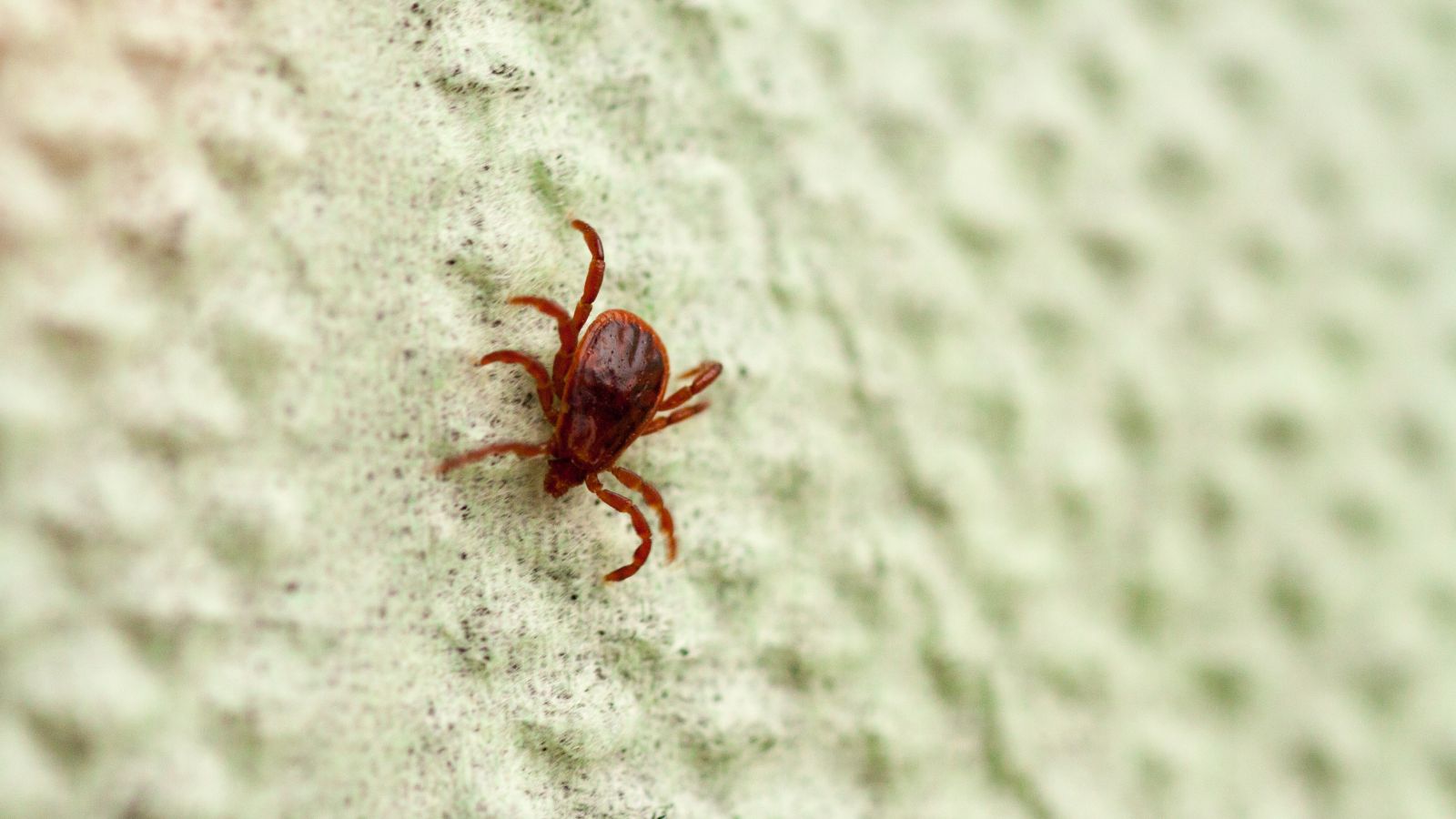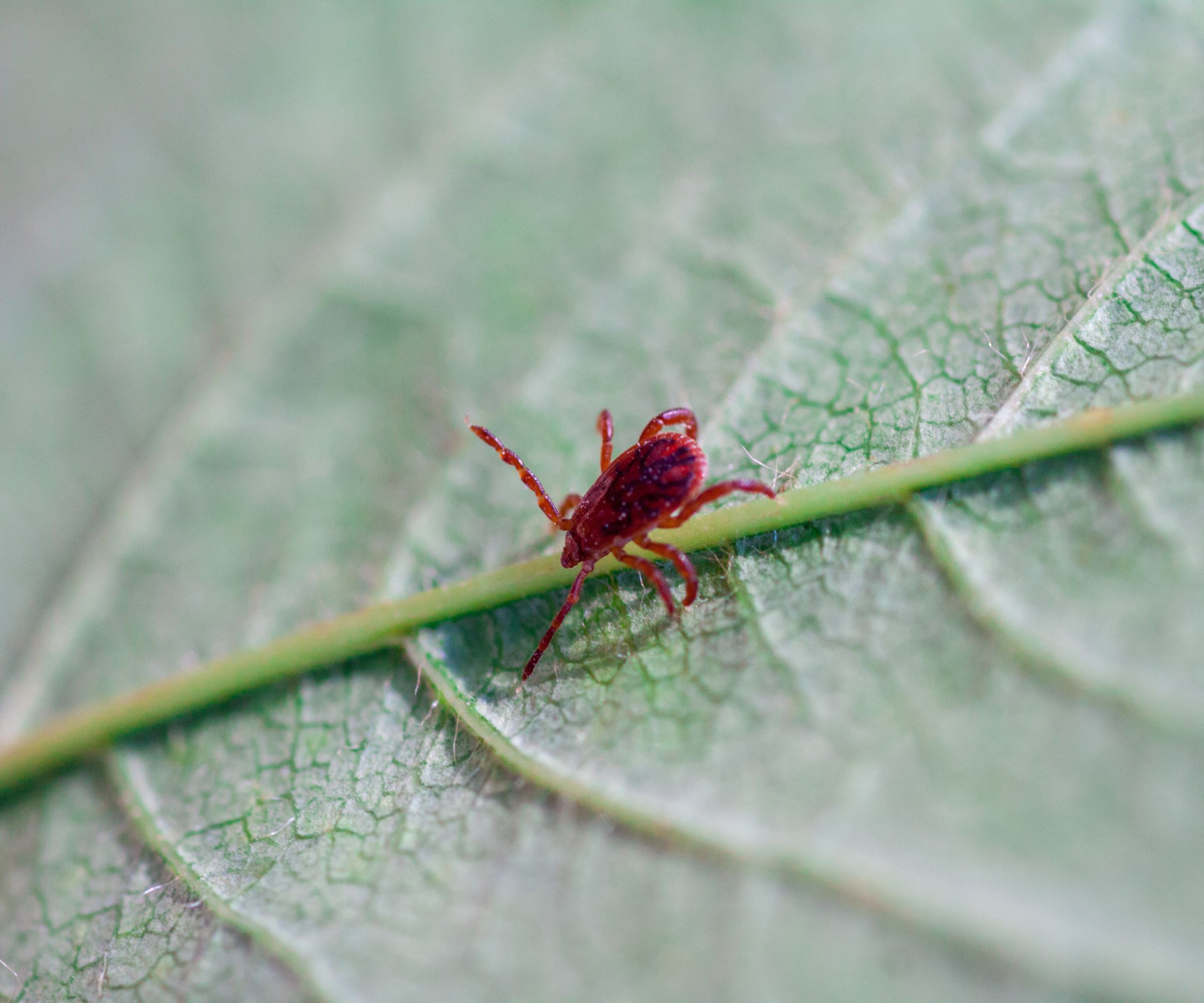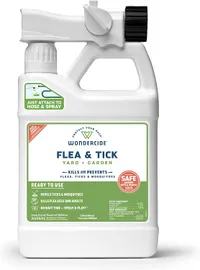How to get rid of chiggers – banish these tiny red bugs from your yard
Although minute, these insects can pack a punch with their bites. Here’s how to get rid of them


Design expertise in your inbox – from inspiring decorating ideas and beautiful celebrity homes to practical gardening advice and shopping round-ups.
You are now subscribed
Your newsletter sign-up was successful
Want to add more newsletters?

Twice a week
Homes&Gardens
The ultimate interior design resource from the world's leading experts - discover inspiring decorating ideas, color scheming know-how, garden inspiration and shopping expertise.

Once a week
In The Loop from Next In Design
Members of the Next in Design Circle will receive In the Loop, our weekly email filled with trade news, names to know and spotlight moments. Together we’re building a brighter design future.

Twice a week
Cucina
Whether you’re passionate about hosting exquisite dinners, experimenting with culinary trends, or perfecting your kitchen's design with timeless elegance and innovative functionality, this newsletter is here to inspire
Chiggers may not seem like a dangerous pest, but these almost invisible garden bugs feed on skin cells, encouraging them to bite on us and our pets, leading to small, incredibly itchy bites. So how do you get rid of chiggers?
The trick, experts say, is to treat your whole yard for these microscopic pests and implement some smart preventative measures, such as homemade bug sprays and natural trap plants to keep these bugs at bay.
Here, pro gardeners and pest control experts have shared their top tips for ridding your yard of chiggers, and what you can do to prevent infestations before they take hold.
How to get rid of chiggers
Getting rid of chiggers (also known as cherry bugs for their bright red appearance), is unlike getting rid of many yard pests, like getting rid of ants due to their diminutive size and how hard they are to spot. However, many of the treatments are the same. You just have to apply them to a much wider area to cover all bases.
The good news is that they do not pose a threat to your outdoor plants, so getting rid of them is not vital if you do not find them bothering you or your pets. It is only when they begin to bite and cause itchy rashes that you need to take measures to move them on.

1. Regularly trim your lawn
Chiggers, like many yard pests, thrive in shaded spots with high foliage, so regular lawn maintenance is a great way to encourage them to move elsewhere, says Bryan Clayton, CEO and co-founder of GreenPal.
‘Keep your lawn mowed short, paying attention to how often you should mow your lawn to prevent over mowing, and stay on top of removing debris so you aren't offering chiggers ground cover,’ he recommends.
Design expertise in your inbox – from inspiring decorating ideas and beautiful celebrity homes to practical gardening advice and shopping round-ups.

Bryan has been in the lawn care industry his entire working life starting with mowing neighbor’s lawns in high school. The inspiration for GreenPal is born out of the frustration Bryan observed while operating the landscape business, and how difficult it is for homeowners to find, schedule, and pay a reliable small lawn care professional.
2. Stick with diatomaceous earth
Diatomaceous earth is a savior for many gardeners, and is a great natural solution to kill and dehydrate any chiggers stopping you from tending to your yard, says Jeremy Yamaguchi, pest expert and professional gardener at Lawn Love.
‘It’s an all-natural, non-toxic product made from the fossilized remains of diatoms – microscopic algae that live in freshwater,’ Jermey explains. ‘Diatomaceous earth kills chiggers by dehydrating them and preventing their bodily fluids from circulating properly or by slicing them with its sharp granules.
He says that you can easily buy this product at most garden centers, or simply pick up diatomaceous earth at Amazon. It is very straightforward to apply: 'just put on some gloves and sprinkle it over hot spots areas where there are tall grasses, shade, shrubs, or dog houses,' says Jeremy.
3. Use an insect repellent
Using insect repellent is one of the best ways to get rid of chiggers. The best solution is a repellent with DEET or Permethrin, recommends Bryan Clayton of GreenPal. These solutions are also great to get rid of ticks, making it a wonderful multi-purpose spray to keep at hand.
Wonderside Pesticide | $37.99 at Amazon
This targeted pesticide is safe for most garden plants, and is safe for use around people and pets, making it a great preventative spray for the most troublesome of outdoor pests.
4. Use a tea tree essential oil spray
Essential oils can be used for all sorts of pest problems, such as keeping flies out the house and getting rid of mice. When it comes to chiggers, Megan Wade, co-owner of Done Right Pest Solutions recommends using tea tree essential oil mixed with water to spray around smaller areas where you have seen chigger activity.
‘This is not a good approach to take if you have pets that freely roam your garden, however,’ she adds. ‘Many essential oil mixes are not pet safe (which is why they work so well for pests), so it is not worth taking the risk with your four-legged friends.’
5. Call a professional
If you can see swathes of chiggers in your yard, then you almost certainly have a severe infestation that should be dealt with by a professional pest control expert, says Diana Cox, horticultural expert and founder of The Gardening Talk.
Given how small these spider-like pests are, if you can clearly see them from a distance, there is likely to be hundreds of them. That is too much for any regular gardener to get rid of, especially if they want to get out into their yard to tend to their plants. Calling a pro is your best bet as it likely means they have a steady food source, which could be a sign of other pests, such as rats or mice.

Diana started her website as a way to help others who are new to the world of gardening and plant care. She has been growing plants since she was a little girl, and started to document her experience in gardening a few years ago.
FAQs
How long do chiggers stay on you when they bite?
A chigger, unlike a tick, will fall off of your body easily when you swipe it away. You can also remove them by washing the area with warm soapy water, and washing your clothes in a warm laundry cycle.
Can chiggers infest your home?
Chiggers largely dwell in gardens and yards, and struggle to infest your home as they lack a food source (usually made up of small insects like aphids). Because of this, you will not tend to find them on your furniture or in your bed, nevertheless, it is important to wash any clothing or blankets used outside near chiggers to stop them hanging around for one or two days and biting you indoors before they die.
If you have been bitten by a chigger, you may experience intense itching for a day or two and a small line of red spots or pimples on the skin. If you have been bitten you can treat the area yourself using some warm soapy water to clean the area, using a bite and sting cream to limit itching, and taking an antihistamine to reduce your reaction to the bite. It is important to try to avoid scratching the area to prevent breaking the skin and causing an infection.
If the area begins to swell or turn bright red, you may be having an allergic reaction, and it is important to consult a medical professional.

Chiana is Homes & Gardens’ kitchen appliances editor. With a lifelong passion for cooking and baking, she grew up experimenting in the kitchen every weekend with her baking-extraordinaire Mom, and has developed a great understanding of how tools and appliances can make or break your ideal relaxing kitchen routine.
